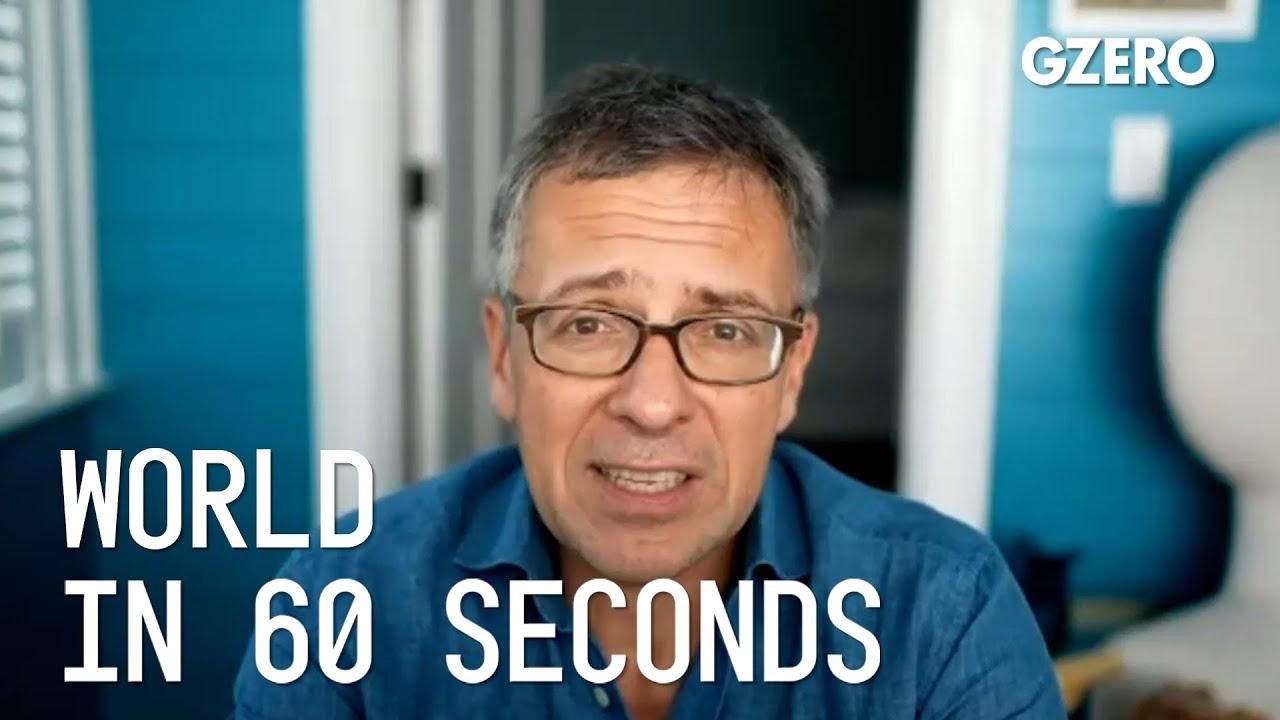
Ian Bremmer shares his insights on global politics this week on World In :60.
How could China possibly hit back over Nancy Pelosi's Taiwan trip?
Well, it was highly unlikely they were going to interfere with her getting onto the island and ditto with her leaving it. But we've already seen announcements of lots of military exercises all around Taiwan, potentially missile tests going over Taiwan through Taiwanese airspace. That would be unprecedented as a provocation. Beyond that, there have been sanctions already on over a hundred Taiwanese companies that provide food into China. I can certainly imagine more limitations on Taiwanese companies doing business with the mainland. And the real question is, do they change the status quo with Taiwan either economically or diplomatically during the Party Congress coming up where Xi Jinping is supposed to get his third term?
I do believe that we are going to see a significant amount of retaliation. The Chinese were very public and very consistent in their warnings. And it feels like from the Chinese perspective, a great loss of face as Xi Jinping is planning to secure his third term.
But Pelosi decided to go anyway. The Americans have the ability to escalate and hit back. Biden administration has warned the Chinese not to escalate. I do think that the Chinese, given their economic challenges right now, are not looking for a massive crisis. But this is going to significantly deteriorate the relations between two most powerful countries in the world. That's what we are looking at right now.
Will the death of the al-Qaida leader shift the dynamic between the US, Pakistan and the Taliban?
I mean, it's a big deal, of course, for any American president to kill al-Zawahiri, the leader of al-Qaida and critical deputy even back in 9/11, helping to orchestrate the attacks against the United States at that point. I mean, it's a big deal and it's a big deal to the Americans who were able to pull that off with no collateral damage without having any troops on the ground, making you wonder why it was the US had boots on the ground in Afghanistan for such a long time when they were normally there in principle, not to rebuild Afghanistan, but to ensure that the Afghan government were not harboring terrorists that could launch attacks against the US or its ally. So, anyway, I don't think the dynamic changes because the Taliban has obviously been lying as we all knew about not harboring any terrorist. This leader of al-Qaida was in a property that belonged to a deputy of the leader of the Taliban. It's very obvious that they were helping him and fully aware that he was there and there are going to be more attacks I'm sure from the US going forward. The US considers the Taliban government a pariah. They have frozen their reserves.
There's been a lot of humanitarian outcry about that. This clearly justifies the US position and the Taliban not getting any access to their cash going forward. I think the relationship between the US and Afghanistan will continue to be a very much arms length and antagonistic. And to the extent that the Pakistan government is seen as providing some support and engagement for that, even if you don't have strong open diplomatic relations does mean that Pakistan will also continue to be on the wrong side of US policy. And of course, they're much closer to China these days. So that's not much changing, but certainly entrenchment of the existing US policy.
Finally, with California and Illinois joining New York to declare states of emergency over monkeypox, will the US do better to react this time?
It does not seem that way in the sense that the Americans don't have a great testing protocol in place for monkeypox. Vaccines do exist. It took the US a fair amount of time to acquire them. It shouldn't be a state of emergency. This should be something the Americans, if they were really learning lessons from COVID, would've been on top of immediately with an effort to educate, inform, and contain. And that's not where we are, in part because it is a disease that is harder to transmit. And also where there is an effective vaccine that already is in place. And you're not looking at significant lethality. But what if it were? And the answer to that is we'd be in a much worse place. And it's unfortunate to see that on the back of two and a half years of pandemic.
So that's where we are. I hope everyone's well. And I'll talk to you all real soon.
- Hard Numbers: Orbán clams up over oil, monkeypox on the move ... ›
- What We're Watching: US kills Al-Qaida leader, Pelosi's Taiwan pit ... ›
- Will she, won't she? The fallout from Pelosi's Taiwan talk - GZERO ... ›
- Symbolism matters — Taiwan's post-Pelosi politics - GZERO Media ›
- Pelosi Taiwan visit reflects extremely strong US Congress support - GZERO Media ›